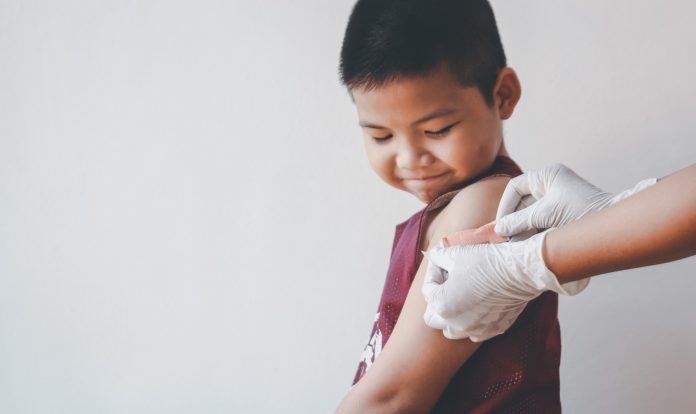Medical researchers say the current vaccine against bacterial pneumonia isn’t providing children with optimal protection, with vaccine-resistant pneumonia increasing since a vaccine that targets 13 serotypes of Streptococcus pneumoniae bacteria was introduced into the childhood immunisation program in Australia.
A new national study published in Vaccine has found that the majority of the 779 children in the study admitted into hospital with pneumonia had been fully vaccinated against Streptococcus pneumoniae, the bacteria commonly associated with severe cases of pneumonia.
As part of the study, medical researchers from UNSW Sydney and multiple leading research institutions used three years of prospectively collected data from all children hospitalised with pneumonia across 11 tertiary paediatric hospitals across Australia between 2015 and 2018.
“Our study looked into the effectiveness of the vaccine in preventing severe forms of pneumonia,” says Dr Nusrat Homaira from UNSW’s School of Paediatrics and Child Health.
“The vaccine currently available in Australia should provide protection against 13 serotypes – or 13 different variations–of the Streptococcus pneumoniae bacteria.
“But our study shows that the vaccine is not providing optimal protection against invasive pneumococcal pneumonia or severe pneumonia caused specifically by serotypes 3 and 19A, both of which should be covered by the vaccine.”
Dr Homaira points to two possible reasons why the current pneumonia vaccine isn’t effective in preventing serious illness:
- The vaccine doesn’t produce much of an immune response against serotype 3 of Streptococcus pneumoniae bacteria. This is due to the biochemical property of the capsule of this serotype.
- The timeframe the vaccine is administered doesn’t produce lasting immunity.
“The dose schedule in Australia in the years that we looked at was to administer to children in three stages, at two months, four months and six months of age,” says Dr Homaira.
“But in many countries, the dosing was at four months, six months and 12 months. Having the final dose at 12 months provides more lasting protection than having the last dose at six months, which may not provide coverage beyond one year of age.”
Since 2018 Australia has moved to the four, six and 12-month scheduling doses, and Dr Homaira says “it will be important to see if that has an effect on the numbers of children succumbing to invasive pneumococcal pneumonia”.
New formulations of the pneumococcal vaccine are also becoming available, which appear to promote better immune responses.
“We need enhanced surveillance, which will allow for routine molecular testing of lung fluid to monitor pneumococcal pneumonia and newer formulation of vaccines that will render better protection,” says Dr Homaira.










